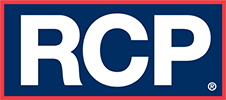Engineering Services
RCP engineers provide clients with decades of engineering design, project implementation, project management, pipeline integrity, operations, process safety, security, and risk management experience.
Having worked for some of the largest oil and gas operators around the world, RCP experts are routinely
called upon to solve asset management problems that require a high degree of sophistication in order to help
our clients understand and effectively respond to issues and risks that are not easily defined or quantified.
The first final rule expected to be published in 2018 will address the legislative mandates from the 2011 Pipeline Safety, Regulatory Certainty and Jobs Creation Act. The rule will be called the Safety of Gas Transmission Pipelines: MAOP Reconfirmation, Expansion of Assessment Requirements, and Other Related Amendments, and addresses the following items:
-
6-month grace period for 7 calendar-year reassessment intervals
-
Seismicity threats related to integrity management
-
MAOP exceedance reporting
-
Material verification, MAOP reconfirmation, & amendments related to §192.619
-
Non-HCA assessments and MCA definition
-
Related record provisions
RCP has been a market leader in providing MAOP Validation Services for over 20 years, including over 100,000 miles of gas and liquid pipeline analysis and support.
Whether you are just starting your MAOP validation efforts, not sure what to do next, or need help finishing, RCP has a wealth of experienced engineers and support staff to help you understand and comply with the MAOP Reconfirmation, Expansion of Assessment Requirements Rule.
- PRESSURE TEST STANDARDS AND PLANS
-
Develop pressure test standards and procedures
-
Review, update and consolidate company’s existing pressure test standards and procedures
-
Create standardized test plan templates
- DESIGN AND CERTIFICATION OF PRESSURE TESTS
-
Assist in the design of pressure test projects
-
Develop and review test plans for upcoming tests
-
Provide on-site inspection support and certification of pressure tests
- TRAINING AND RECORDS REVIEW
-
Conduct generic or customized pressure test training
-
Review of prior test records in preparation for an audit
-
Review of pressure test records in preparation for purchase of an asset
RCP engineers have an in-depth understanding of all applicable state and federal leak detection requirements, advisory bulletins, inspection protocols and referenced standards, as well as how they apply to pipeline design, operational procedures, leak detection methods, risk analysis and mitigation strategies.
RCP Leak Detection Capabilities Evaluations (LDCE) provide a comprehensive gap analysis an assessment of an operator’s Leak Detection Program (LDP), and Leak Detection Systems (LDS) that includes; LDS selection methodology, performance targets, metrics, and KPI’s, testing, control center procedures, alarm management, training, and leak detection equipment maintenance reliability.
RCP then evaluates key factors as described in §195.452(i)(4) such as pipeline profile, swiftness of leak detection and pipeline shutdown capabilities, potential release volume, location of nearest response personnel and specific terrain between pipeline segment and HCAs to determine if the benefit threshold factors are satisfied and make a recommendation regarding installation of the EFRD.
Summaries of interviews and conclusions based on the findings are used to formulate recommendations. The recommendations become the basis for the development of a Remedial Work Plan (RWP), which details the activities and processes necessary to prevent recurrence.
RCP final reports detail the methodology utilized, findings for each of the techniques employed, summary of SME discussions and recommendations based on the discussions and findings. Report attachments will include details of interviews, causal factor summaries and reference document log.
Repair / Modification Specifications for:
-
Codes & Industry Standards
-
Preparation for Repairs
-
Qualifications of Materials, Procedures, and Personnel
-
Permissible Permanent Field Repairs
-
Inspection and Test of Repairs
-
Pipe Movement
-
Branch Connections and Hot Taps
Guidelines for Pipeline Paint, Coatings, and Inhibitors:
-
Paint System Considerations
-
Coating Maintenance, Storage, and Handling Considerations
-
External Coating Inspection Equipment and Activities
Cathodic Protection Specifications for:
-
Industry Standards
-
Calculations
-
Testing & Measurements
-
Close Interval Survey Procedures
-
Supplemental Procedures
-
Cathodic Protection Installation and Repair
-
External Corrosion Procedures
-
Rectifier and Equipment Lists
